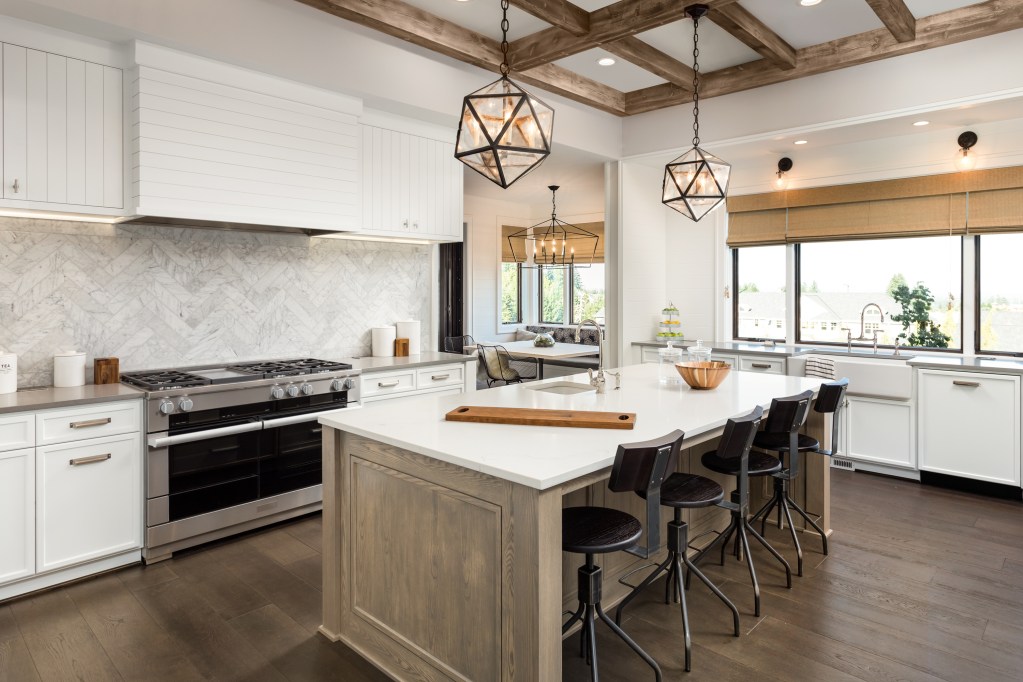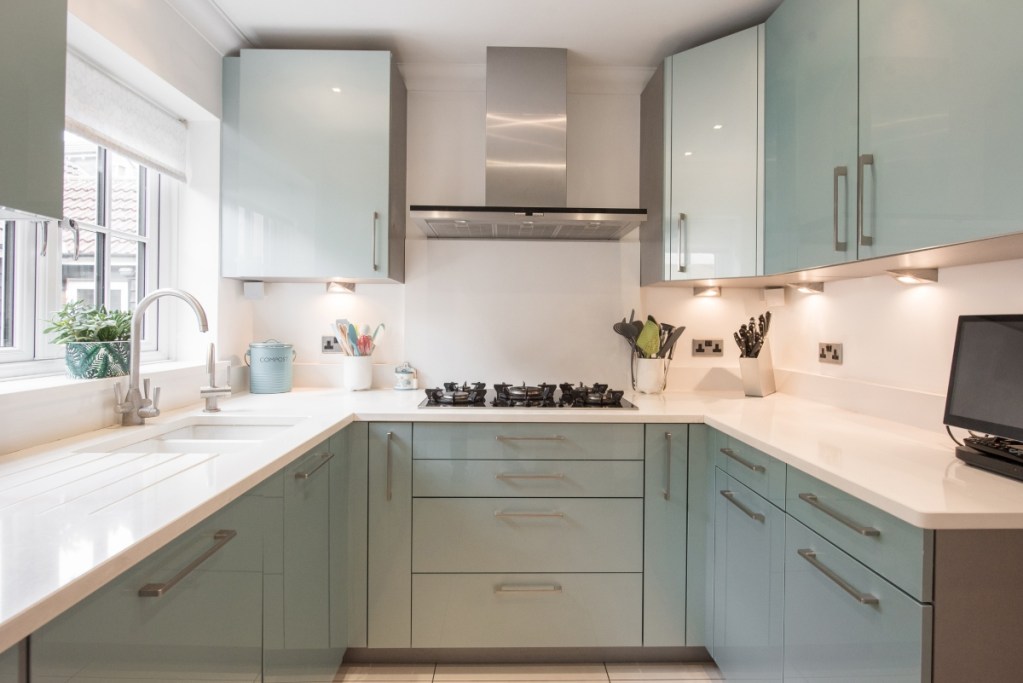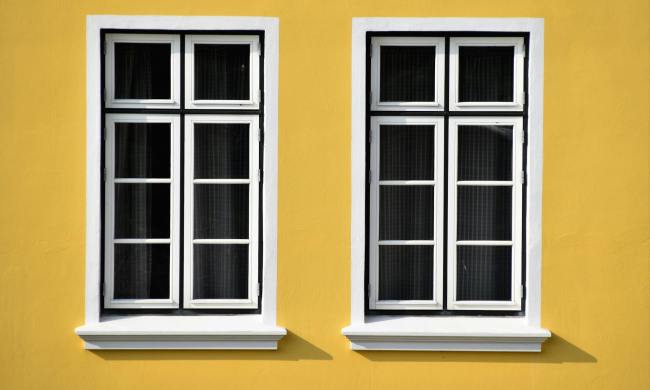Both quartz and granite countertops share the limelight when it comes to kitchen design. Traditionally, granite has dominated kitchens around America for the past few decades. However, in recent years, quartz has become the trendy go-to. But which is better?
We’ll dive into the heated debate of quartz vs. granite countertops, comparing the two so you can make the choice that’s best for your home.
What is quartz?

Quartz countertops are notably white or gray in color. They are typically made of 90 to 95% ground natural quartz and 5 to 10% polymer resin and pigments.
What is granite?

Granite countertops are 100% all-natural granite stone cut and polished to the desired shape. Granite can come in various unique markings and colors since it’s an all-natural stone quarried straight from the Earth.
Quartz vs. granite countertops

Now that you know the main difference between quartz and granite countertops, let’s explore their qualities to better determine which material is best for you.
Appearance
Quartz countertops have garnered a lot of popularity in recent years due to their coloring. The crisp white or gray hues suit modern designs and have become a staple as all-white color palettes dominate interior design. Quartz countertops offer a clean, simple, minimal, and elegant appearance that many homeowners crave.
Granite countertops have held their position as one of the most-desired countertop materials for the past decade or more because of the variety of colors and patterns homeowners can choose from. Since granite is an all-natural stone, no two countertops are exactly alike. This offers homeowners more options when choosing a color or pattern for the countertop that best suits the look of the home.
Durability
Quartz is more durable than granite, meaning you’re unlikely to chip or damage the material. It’s not porous and it’s easy to clean, meaning spills and stains can be removed with ease without worry of permanently staining the surface. However, excessive heat can damage quartz, so be sure not to place hot pots or pans on the surface without a pot holder.
Granite countertops are durable, but not as hard as quartz. Additionally, granite countertops are porous, so spills can potentially stain the surface. While it’s heat resistant, it isn’t invulnerable to damages, so be mindful when working with a granite countertop.
Maintenance
Quartz countertops are low-maintenance surfaces and easy to clean. Most homeowners will find that soap and water can clean up nearly any mess and their quartz counters will remain pristine for years.
So long as you clean up spills and stains quickly, granite countertops are also easy to clean. Soap and water should do the trick for most situations. However, be mindful of acidic cleaning solutions and remember that granite is porous. It’s recommended that homeowners reseal granite countertops once a year.
Price
Price is a big deal breaker for most homeowners when choosing the right countertop. Below, we’ll list the costs you should be aware of if you’re deciding between quartz and granite countertops.
How much is a quartz countertop?
According to Angie’s List, quartz countertops cost, on average, $4,500 to install. The site continues, stating that the typical range for adding quartz countertops to your home is $1,000 to $12,000.
How much is a granite countertop?
The Home Depot states that the cost of installing granite countertops per square foot ranges from $43 to $140, with an average of $70. On average, a homeowner might expect to spend $2,000 to $4,000 on granite countertop installation. The type of granite, whether it is a high-end piece or not, will also affect the price.
How eco-friendly is quartz vs. granite?

Today, many homeowners are looking for the most sustainable choices for their home renovations. Knowing the environmental impact of the materials you choose could be a deal breaker for the quartz vs. granite debate.
Quartz
In most cases, quartz countertops may be the more eco-friendly option. Since quartz is engineered, you can purchase from a regional seller without worrying about mining impacts on the environment. Just be mindful of transportation for your countertop and try to choose a local seller.
Granite
Depending on how you source your granite, it can be a fairly eco-friendly choice or have a poor environmental impact. If you choose luxury granite mined from Brazil or Italy, your stone will have to be transported overseas. From mining pollution to the transport carbon footprint, granite can be taxing on the environment. However, due to its popularity, homeowners can source scrapped granite that can be re-cut to fit their needs. This is the most environmentally friendly option.
Both quartz and granite have their benefits and drawbacks. However, there is a reason both countertop materials have held the spotlight in our kitchens over the years. These incredible surfaces make an impact on many designs and have a lot to offer for homeowners looking for the best solution for their spaces.




